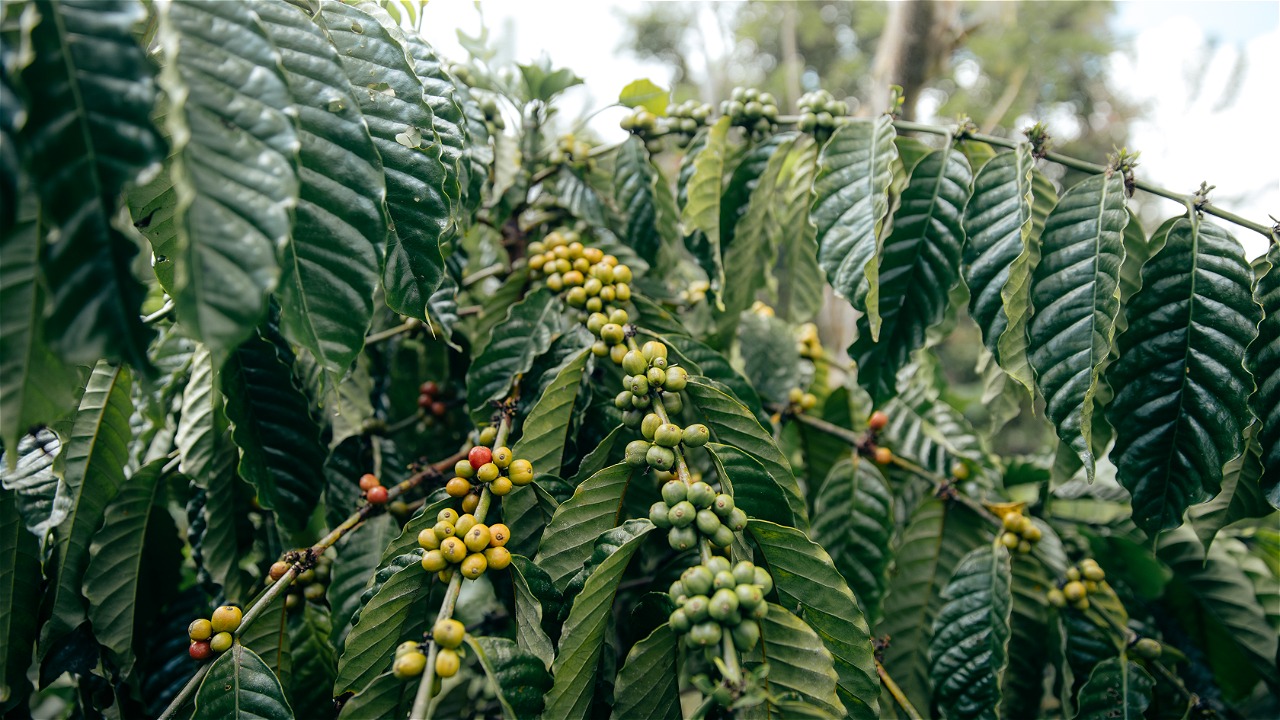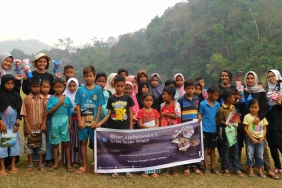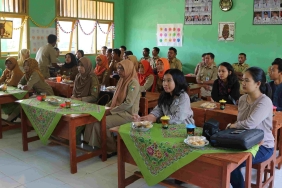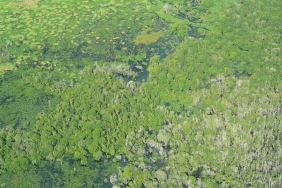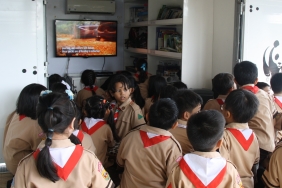IMPROVING PRODUCTIVITY OF COMMODITY THROUGH SUSTAINABLE FIELD FARMER SCHOOL
Since 2009, WWF-Indonesia has started to organize Sustainable Field Farmer School program inspired by the concept of field farmer UNFAO (United Nations Food and Agriculture Organization) which has been first introduced in 1989 in Indonesia. The concept of field famer school has been imitated and developed in Lampung province do coexist in the Bukit Barisan Selatan National Park.
The sustainable field farmer school program originally aims to provide understanding, skills and motivation to change farmers' attitudes and behaviours so that they can practice sustainable agricultural concepts to increase the productivity of their farm. The farmers involved can also play an active role as facilitators then they also can cascade their gained knowledge with other farmers. In the eight years of its implementation, this program has successfully engaged around 1,977 farmers from 24 villages on three districts in Lampung Province, such as; West Lampung, Tanggamus, Pesisir Barat.
Knowing the high entusiasism shown by farmer participants and added by the success of programme, Toyota Motor Corporation through global partnership "Living Asian Forest Project" has committed to supporting the sustainable field farmer school hence it can improve the sustainability of natural resources and commodities so that the threat of deforestation and extinction species can be reduced.
“Living Asian Forest Project” that has been implemented since 2016 in Kalimantan and Sumatra with one of them is held in Bukit Barisan Selatan Nasional Park. This program aims to accelerating the globe’s transition to sustainability, promoting biodiversity conservation, raising enviromental awareness of the environment, and accelerating the move toward a “zero carbon” society.
At the beginning of the program in September 2016 to February 2017, various field farmer school trainings were held and engaged around 120 coffee and rice farmers from four villages, such as; Tugu Ratu, Tugu Papak, Sukajaya, and Sukamaju. After the training, Training of Trainers (ToT) is also provided to capture the potential facilitators / trainers from different villages who will share their knowledge and skills that have been obtained to other farmers.
During the ToT activities, farmer participants will be asked to reflect on the problems they often encountered in their farm, sharing stories of how they resolve the issue, and discuss the the effectiveness of the solution that has been used. And then, the participants were introduced to best practice of crop cultivation which is closely associated with learning about the condition of soil fertility, plant species, pests and diseases. After that, they will also be given skills in making liquid organic fertilizer and compost through the development of local micro-organisms so that they can reduce the use of chemical fertilizers.
In addition, the farmer participants also learned about the development of goat’s livestock which have provided them with an additional income. Moreover, the combination of sustainable agriculture and livestock is expected to integrate and support each other. For instance, goat feedings can be derived from a coffee/pepper plant protector and goat manure that can be used as compost.
One tangible proof that sustainable field farmer schools can increase productivity comes from farmers in Ulubelu who are now able to produce 1.5 tons of coffee. On the other hand, farmers in Suoh have also started to plant organic rice, which is more expensive than non-organic rice, so their income also increases.
Furthermore, based on visits made by WWF Japan on March 20, 2018 in Trijaya Village, Sukajaya Village, and Bukit Endah Village, many participants and local governments told them that this activity had a positive impact on their lives. Some positive examples are, they have left chemical fertilizers and switched to organic fertilizer, they started to not only planting commodity crops but also medicinal plants, planting organic crops and raising goats. In addition, and most importantly, now many farmers have become a good facilitator for their fellow farmers in other villages so that the programe will last sustainably and independently.

